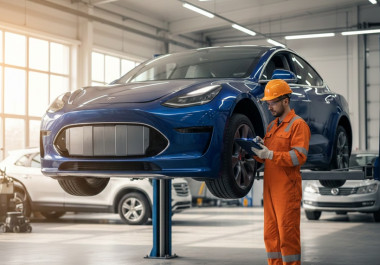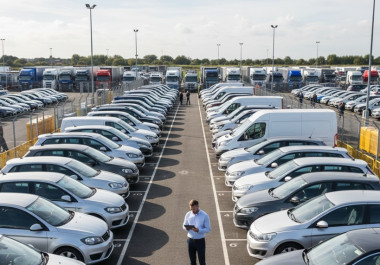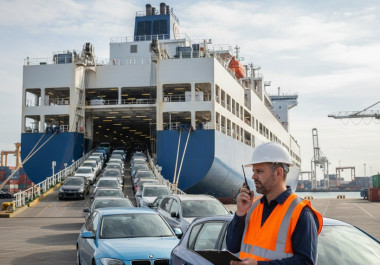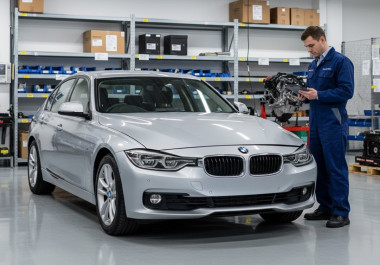Auctions offer a fast-moving route to connect sellers with motivated buyers, especially when aiming for a timely and competitive sale, but understanding the fee structure is crucial to ensure you receive the best possible net outcome. Whether you're considering a Fess Selling car auction or comparing different platforms, being well-informed about the costs involved will help you avoid surprises and make confident decisions.
Breaking Down Auction Costs from the Start
Every auction, whether it's a physical event or an online platform such as RAW2K, has its unique fee structure to cover operational costs, marketing, and administration. Being aware of these elements can make a significant difference when comparing options against private sales or direct dealer trade-ins.
Unlike private sales, auctions often operate on a clearly defined framework that outlines what you pay, when you pay, and how these charges affect your net returns. Sellers unfamiliar with this model might underestimate the total deductions from a final sale. Understanding this early sets realistic expectations.
Why Fees Matter
Auction fees, often called auto auction fees, are deducted from your final sale proceeds. They usually include:
-
Entry or Listing Charges: A flat fee to showcase your vehicle to potential buyers.
-
Commission: A percentage of the final sale price, usually 5% to 15%.
-
Marketing Fees: Optional services like premium placement or professional photos.
-
Transport and Logistics Fees: For getting your vehicle to the auction venue or covering storage.
-
Reserve and Re-listing Charges: Applied if you set a minimum acceptable price or re-list an unsold vehicle.
Knowing these categories can help you assess whether a particular auction method fits your goals.
Entry or Listing Charges: Your Gateway to the Auction
This fee gets your car in front of buyers. On RAW2K, uploading photos and details is done online, streamlining the process.
Types of Entry Charges
-
Flat Rate Listings: Common among many platforms, typically around £50 to £100.
-
Tiered Pricing: Adjusted based on your vehicle's estimated value.
-
Refundable vs. Non-Refundable: Clarify if fees are returned if your vehicle doesn't sell.
Even a small entry fee can reduce your final return, so review terms closely.
Some sellers assume a lower listing charge means a better deal. But a cheaper entry fee might also mean fewer promotional features, lower visibility, or a shorter listing window.
Commission: The Core of Auto Auction Fees
This is often the largest expense. For example, if your car sells for £5,000 and the commission is 10%, your fee would be £500.
Key Points About Commissions
-
Percentage Range: Typically 5% to 15%.
-
Minimum Commission: Sometimes a flat minimum, such as £75, for low-value cars.
-
Impact on Net Proceeds: High commissions can erode profits, especially on lower-value vehicles.
Transparent platforms like RAW2K clearly display these deductions on their car auctions section.
It’s also worth noting that some platforms reduce the commission for sellers listing multiple vehicles at once—a useful tip for trade sellers or dealers handling volume stock.
Enhancing Visibility: Optional Marketing Fees
Promotional services like featured listings or pro photos can help high-demand cars stand out.
Consider When to Invest
-
Enhanced Photos: Improve click-through and bidder interest.
-
Catalogue Placement: Highlight your listing in top spots.
-
Social Media Boosts: Reach a wider audience quickly.
These costs fall under auto auction fees and may be worth it for rare or valuable models.
If you're selling a unique trim, rare import, or low-mileage vehicle, marketing upgrades could trigger a bidding war. Listings with upgraded visibility tend to attract 20–40% more views, according to internal RAW2K traffic estimates.
Transport and Logistics: Getting Your Vehicle to the Auction
Transport costs vary. Some sellers drive their car in; others pay for towing.
Logistics Considerations
-
Distance Matters: Local drop-offs are cheaper.
-
Storage Fees: Charged for early arrivals or unsold vehicles.
-
Discounted Transport: Some platforms offer negotiated delivery rates.
Planning ahead helps minimise these additional costs.
When budgeting for transport, it’s also worth checking whether the auction site requires same-day vehicle collection after the auction. Delays can incur per-day fees, sometimes upwards of £25 per day.
The Reserve Price Factor: Balancing Safety and Expense
Setting a reserve protects your price floor. But some platforms charge for this option.
How Reserve Pricing Affects Fees
-
Reserve Charges: A small surcharge for setting a minimum.
-
Re-listing Fees: Applied if the car doesn't sell and is re-entered.
RAW2K's Auction My Car service guides sellers in choosing the right reserve level.
Avoid the temptation to set the reserve price too high. Cars listed with reserves more than 15% above market value typically fail to meet the threshold and may require re-listing.
Comparing Auction Platforms
When comparing auction houses:
-
Fee Bundles: Some combine all charges; others itemise them.
-
Hidden Costs: Look for admin, late pickup, or correction charges.
-
Reviews & Outcomes: Seller feedback gives a clearer picture of total cost vs value.
Explore RAW2K's featured vehicle auctions to compare how listings perform under different structures.
Also, examine how quickly different platforms settle payments. While some issue funds within 48 hours, others take up to seven business days. This delay can impact cash flow, especially for commercial sellers.
Tips to Manage and Minimise Fees
-
Prioritise Essentials: Skip upgrades that don’t add value to your specific car.
-
Avoid Storage Time: List your car when it's ready to sell.
-
Bundle Vehicles: Ask for multi-listing discounts.
-
Do Fee Comparisons: Not all auction platforms charge the same.
These practical Car Selling Tips can lead to better returns.
Some sellers find value in calling the auction house before listing. Speaking with a rep can uncover waived fees, special promotions, or expert advice that isn't obvious on the platform.
Real-Life Example
A seller expected to net £2,000 from a convertible. But after storage, photo upgrades, and a listing correction fee, the payout was only £1,700. A reminder to read the fine print and factor in every possible charge.
Is Auction Right for You?
The auction route works best when demand and condition are on your side. High-interest models benefit from competition. But if the car has limited appeal, fees might outweigh the gains.
Key Considerations
-
Net vs. Expected Value: Always calculate your real take-home.
-
Vehicle Demand: Check how your make and model perform.
-
Ease of Use: Platforms like RAW2K streamline the process from start to finish.
If you’re ready, check RAW2K's registration page to start listing.
Wrapping Up Your Auction Strategy
Understanding auction fees is essential. From listing to logistics, every pound counts. Doing the homework now means fewer surprises later. When in doubt, use transparent platforms like RAW2K to guide your decisions. Smart selling starts with knowing your costs.
Happy selling!




